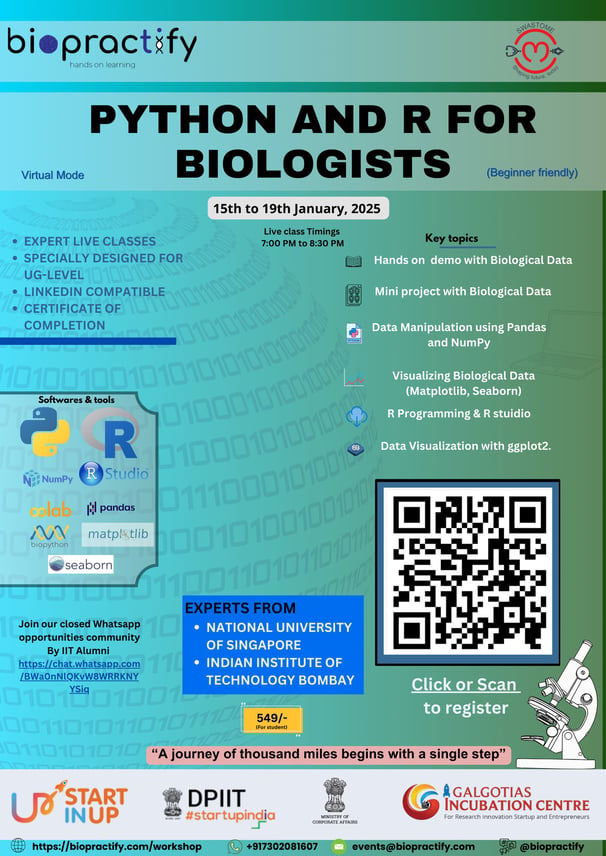Python And R For Biologist
Empower Your Biological Research with Python & R!


Revolutionize Your Research with Python & R
This program is designed to bridge the gap between biology and computational skills, offering hands-on training in two of the most versatile programming languages: Python and R. Whether you're a student, researcher, or professional, this program equips you with the tools to analyze, interpret, and visualize complex biological datasets effectively.
What You'll Learn:
1. Python for Biologists
Introduction to Python Programming: Learn Python basics and its applications in biology.
Data Handling: Work with biological data using libraries like Pandas and NumPy.
Bioinformatics Applications: Automate tasks, parse sequence data, and manipulate FASTA files.
Data Visualization: Create insightful visualizations using Matplotlib and Seaborn.
Machine Learning Basics: Get introduced to machine learning techniques for biological predictions.
2. R for Biologists
Introduction to R Programming: Understand R basics and its statistical computing capabilities.
Data Import and Manipulation: Learn to handle biological datasets with dplyr and tidyr.
Statistical Analysis: Perform hypothesis testing, ANOVA, and other essential analyses.
Data Visualization: Master data visualization using ggplot2 and create stunning graphs.
Bioinformatics Packages: Explore Bioconductor packages for genomics and transcriptomics data.
Program Highlights:
✅ Beginner-Friendly Content: Perfect for biologists with no prior coding experience.
✅ Hands-On Training: Practice coding with real biological datasets and projects.
✅ Comprehensive Curriculum: Covers both Python and R, tailored to biological applications.
✅ Interactive Learning: Engaging sessions with live coding and Q&A opportunities.
✅ Industry-Ready Skills: Equip yourself with tools to boost your research and career prospects.
Who Should Attend?
Students and researchers in biology, biotechnology, or bioinformatics.
Professionals seeking to upskill in data analysis and visualization.
Anyone interested in integrating coding into biological research.



